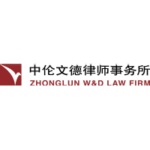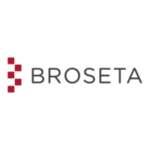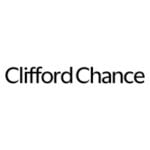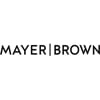-
How is the writing of insurance contracts regulated in your jurisdiction?
Writing insurance is thoroughly regulated in France. Insurance companies that write insurance contracts in France operate within a specific legal and regulatory framework, which stems from a number of key legal sources (chief amongst which are the French Insurance Code and the French Mutual Code) and is heavily influenced by European Regulations. This framework regulates all the main aspects of the industry, from the licensing of insurance companies and the prudential and financial requirements to which they are subject to the distribution and content of insurance contracts.
An independent administrative authority called the APCR (Autorité de Contrôle Prudentiel et de Résolution) is responsible for licensing and supervising insurance activities (as well as reinsurance and banking activities). It also issues guidelines, relating to best practice, and can hand down sanctions, in instances where insurance companies have fallen foul of their obligations.
In addition, the AMF (Autorité des Marchés Financiers) and the ACPR are working closely through a common platform (Pôle commun), whose purpose is to ensure consumer protection with regard to:
- marketing practices, especially in relation to the advertising of life insurance products, and compliance with Law No. 2016-1691 of 9 December 2016, which sets out new requirements regarding, inter alia, transparency and anti-corruption;
- business practices, particularly regarding alternative distribution channels, such as cold calling.
The formation and content of individual insurance contracts are also subject to regulation, namely by way of a body of specific requirements, which are set out in the French Insurance Code and intended to promote transparency and ensure that parties to an insurance contract appreciate the precise nature and extent of the cover provided under the contract and their respective obligations in connection with the said contract. This legal framework inter alia governs:
- insurers’ duty to provide information and advice to the insured before the execution of contract,
- the way the risk is disclosed during the underwriting phase (e. by way of a questionnaire that is prepared by the insurer and completed by the potential insured), or
- substantive and formal requirements by which all insurance contracts must abide (for instance, certain types of clauses are mandatory and must be included in all insurance policies, whereas other types of clauses, such as exclusion clauses or warranty forfeiture clauses, are unenforceable unless they meet strict requirements as to their wording or layout).
Regarding the aforementioned questionnaire, it should be noted that as of 1 June 2022, there is no longer a requirement for policyholders to complete a health questionnaire for mortgages when the sum insured per policyholder is less or equal to 200,000 euros and when the loan is due to be repaid in full before the 60th birthday of the policyholder. Furthermore, as of 1st September 2022, policyholders can terminate their mortgage insurance contract without fees and at any time. The aim of such measures is to increase access to mortgages for a wider range of individuals.
-
Are types of insurers regulated differently (i.e. life companies, reinsurers?)
A single (re)insurance company cannot, as a rule, simultaneously write certain categories of insurance. Insurers cannot, for instance, concurrently offer life and non-life insurance, unless these activities are subject to separate managements, and reinsurers must limit their activities to reinsurance and related activities. In turn, these broad categories of activities are subject to distinct regimens: life insurance, non-life insurance and reinsurance are governed by different provisions of the French Insurance Code and are regulated differently, in particular as regards consumer protection and the provider’s duty to advise and inform.
Moreover, all undertakings are not regulated by the same Codes. By way of example, insurance companies are regulated by the French Insurance Code, whereas mutual insurance companies are regulated by the French Mutual Code.
However, despite the differences highlighted above, certain regulatory requirements are either common to all types of (re)insurance activities or dealt with by distinct but comparable regulatory frameworks. There is, for instance, a great degree of unity regarding the licensing of undertakings or capital requirements.
-
Are insurance brokers and other types of market intermediary subject to regulation?
Insurance intermediaries must be registered with the French Register of Insurance Intermediaries (Organisme pour le registre unique des intermédiaires en assurance, banque et finance, ORIAS). They must be of good repute and meet certain minimum requirements regarding their professional qualifications. Insurance intermediaries must also be insured for their professional liability and meet financial guarantee requirements. Registration at the ORIAS must be renewed each year and it is subject to the payment of a fixed fee.
Though they are also regulated by the ACPR, like insurers, insurance intermediaries are not subject to capital, governance or accounting requirements, unlike insurers.
However, a law reforming insurance and banking and payment services brokerage was adopted on 8 April 2021 (Law No. 2021-402) in order to ensure more effective regulation of brokers’ activities. This law came into effect on January 2023 and provides that:
- brokers are under an obligation to become members of a brokers’ professional association approved by the ACPR under article L513-3 of the French Insurance Code;
- these brokers’ professional associations need to establish rules relating to membership (such as conditions regarding membership or loss thereof, and possible sanctions that may be imposed);
- a professional confidentiality regime is set up.
Therefore, since January 2023, insurance brokers, banking and payment services brokers, and their respective agents are required to join one of the approved associations by the ACPR in order to renew their registration. This mandatory registration aims to enhance transparency, accountability, and professionalism in the brokerage industry, and to promote best practices among insurance and banking brokers in France. The provisions of the law were unsuccessfully challenged before the French Constitutional Court (Conseil Constitutionnel, 21 October 2022, No. 2022-1015 QPC) and the French Supreme Court for administrative matters (Conseil d’Etat, 25 July 2022 and 10 March 2024, No. 464217).
In a significant 24 October 2018 decision, the French Supreme Court (Cour de cassation) addressed the consequences, for a broker, of being stricken off the obligatory registers (i.e. the ORIAS register and Trade and Companies register). The decision held that, once a broker had been stricken off these registers, it could no longer receive payments from its clients, including payments that were owed in connection with services that had been rendered before the broker was struck off the said registers. This decision is, therefore, quite severe, in that by making a strict application of the principle according to which a broker must be registered to perceive fees, it renders being stricken off the obligatory registers into a much more substantial sanction (Cass. 1st. Civ., 24 Oct. 2018, No. 16-16.743).
The Insurance Distribution Directive No. 2016/97 of 20 January 2016 thoroughly reformed the European legal framework regarding insurance distribution.
It was implemented in France by Order No. 2018-361 of 16 May 2018 and by Decree No. 2018-431 of 1 June 2018. The French provisions entered into force on 1 October 2018 and introduced important changes to the French insurance intermediation market, specifically in relation to:
- intermediaries’ duties to inform potential insureds and provide advice on insurance products, which will now have to meet more exacting standards, and
- transparency, which is further promoted by new rules intended to provide policyholders with a greater degree of information regarding intermediaries’ remunerations and intended to prevent conflicts of interests.
Articles L511-1 et seq and Articles R511-1 et seq of the French Insurance Code, which regulate the distribution of insurance products, have thus been amended to comply with the Directive. These new provisions broaden the definition of distribution of insurance products, so as to include distribution over the phone and the internet. The recast version of Article L511-1 also applies to insurance companies, including the majority of distributors, that carries out this activity on a secondary basis.
Furthermore, the obligation for intermediaries to give precontractual information and advice has been reinforced by a decision rendered by the European Court of Justice, which held that even if precontractual advice is given with no real intention to enter into a contract from the intermediary part, the latter must nonetheless comply with its precontractual obligations, since its actions fall under the scope of intermediation (ECJ, 31 May 2018, C-542/16).
The abovementioned 8 April 2021 law also provides for a better supervision of telephone marketing of insurance products, inter alia by strengthening the information provided to policyholders and defining the procedures for obtaining consent and providing for the storage of recordings for two years (new article L. 112-2-2 of the French Insurance Code).
-
Is authorisation or a licence required and if so how long does it take on average to obtain such permission? What are the key criteria for authorisation?
Insurance companies need to have a license in order to underwrite insurance related to risks situated in France. Licenses are not general, but granted for specific classes of insurance activities, which are listed in article R.321-1 of the French Insurance Code.
Reinsurers also need to have a license to carry out reinsurance and related activities in France but, unlike insurers, reinsurers can write both life and non-life business.
The French insurance regulatory body, the ACPR, is responsible for reviewing applications and granting licenses. When electing whether to grant licenses, the ACPR takes the following criteria into account:
- the technical and financial resources of the company,
- the honorability, expertise and experience of the individuals responsible for the firm’s management,
- the shareholders and capital structure, and
- the Minimum Capital Requirement (MCR) and Solvency Capital Requirement (SCR) required by the Directive 2009/138/EC of the European Parliament and of the Council of 25 November 2009 on the taking-up and pursuit of the business of Insurance and Reinsurance (hereinafter “Solvency II”).
The ACPR has six months to communicate its answer to the applicant. If no answer is provided at the end of this six-month period, the license is deemed to have been granted. In the event of a refusal from the ACPR, the applicant can lodge an appeal before the French supreme administrative court (“Conseil d’Etat”) within the two months following the refusal’s notification.
Insurers based in other EU Member States can operate in France thanks to the European passporting mechanism, pursuant to the freedom of establishment and freedom of services EU regulations, which have been implemented in France.
To operate in France, insurers situated outside the European Union will usually need to obtain a general authorisation from the ACPR, as well as a special approval for a general representative to be based in France.
-
Are there restrictions or controls over who owns or controls insurers (including restrictions on foreign ownership)?
A prior notification must be made to the ACPR (by the acquiring and the transferring parties) and authorizations need to be obtained in instances where the envisaged changes in share ownership would lead to:
- the proportion of voting rights held by the buyer or the seller rising beyond or decreasing below certain thresholds, namely 10%, 20%, 33% or 50%, or
- the acquisition or transmission of a subsidiary by one of the parties, or
- a significant change in management.
The following criteria will be taken into account by the ACPR when considering whether to allow the envisaged change in ownership:
- the reputation and the financial strength of the acquiring party, the reputation and experience of the person who will be in charge of the business, the undertaking’s ability to fulfil the French Insurance Code requirements and the absence of reasonable grounds for suspecting money laundering, and
- whether the envisaged transaction calls into question the conditions to which the license is subject (if this proves to be the case, the ACPR will inform the parties within sixty days of the application’s submission).
The ACPR may either agree to, or refuse, the contemplated change in ownership. It can also grant conditional approval, subordinated to one of the parties taking certain steps.
Where the envisaged transaction involves a company situated outside the European Economic Area (“EEA”), the ACPR will need to inform the European Commission, whose approval is also necessary (the European Commission has three months to indicate whether it opposes or approves the change in ownership).
-
Is it possible to insure or reinsure risks in your jurisdiction without a licence or authorisation? (i.e. on a non-admitted basis)?
The French Insurance Code prohibits non-authorized insurers from insuring risks situated in France.
There are, however, some exceptions, regarding for instance:
- insurance and reinsurance companies whose registered office is in an EEA state (provided they are licensed in their home jurisdiction), or
- inward reinsurance transactions which are carried out on the margin of an insurer’s direct insurance activity.
-
Is a branch of an overseas insurer, insurance broker and/or other types of market intermediary in your jurisdiction subject to a similar regulatory framework as a locally incorporated entity?
(Re)insurance companies and intermediaries whose registered office is in an EEA State are entitled, as long as they are licensed in their home jurisdiction (and insofar as the supervisory authority of their country of origin sends the ACPR the required information), to provide for insurance services in another EEA state, including France (Solvency II, Art. 147 to 149, French Insurance Code Art. L. 361-1 to L.365-1).
To do so, the company must be represented by a general representative (i.e. broker or other type of intermediary). If the representative is a natural person, he must be domiciled and reside in France. If the representative is a legal person, its registered office must be in France.
These companies are bound by the limits of their license: French Administrative Supreme Court reminded in 2010 that an insurance company having its registered office in another Member State may not carry out an insurance activity for which it has not been duly licensed in its Member State (Conseil d’Etat, 19 July 2010, No. 337071, Région Réunion).
Insurance and reinsurance companies as well as intermediaries that do not have a registered office or branch in an EEA State are prohibited from providing insurance to French insureds, unless they register a local branch in France and obtain two types of accreditations: (i) the ACPR approval; and (ii) a special approval, which is political and discretionary. These companies may also be required to provide a reciprocity bond in the event that the country they are established in imposes such measures upon French organisations.
-
Are there any restrictions/substance limitations on branches established by overseas insurers?
When overseas insurers establish local branches in France, i.e. for insurance companies that do not have a registered office or branch in an EEA State, these branches are subject to a set of regulations and approvals that ensure their compliance with local standards and go through both the ACPR approval, and the special approval mentioned above. These branches are considered as French insurers and are not subject to any additional restrictions compared to purely local insurers. As such, they are free to operate in the French market under the same conditions and regulations as other insurers.
However, the situation can be different for insurers that have a registered office or branch in an EEA State. In such cases, their operation in France is limited by the scope of their license in their home state. This means that their activities in France may be restricted to the specific areas covered by their license, which could limit their ability to offer certain types of insurance or services in the French market (Conseil d’Etat, 19 July 2010, No. 337071, Région Réunion).
-
What penalty is available for those who operate in your jurisdiction without appropriate permission?
Writing insurance without the appropriate permission is a criminal offence, punishable by a prison sentence of up to three years and a fine of up to €75.000 for natural persons or €375.000 for legal entities. Legal entities may also face sanctions from the ACPR and can, moreover, be temporarily or definitively prohibited from conducting business in France.
The policyholder may also risk criminal fines of up to €4.500 for contracting with a foreign insurer that is non-admitted to insure French risks, except for marine and air insurance or where a specific derogation is granted by the ACPR (in instances where the same cover is not offered by insurers admitted to operate in France).
Conducting insurance intermediation without permission is also an offence, which may be punishable by a fine of up to a €6.000 and a prison sentence of up to 2 years.
An insurance policy issued by a non-admitted entity will be deemed to be null and void. The ensuing nullity cannot, however, be raised against the insureds, the policyholders or the beneficiaries, provided they acted in good faith and believed the entity at issue was authorized to write insurance in France.
-
How rigorous is the supervisory and enforcement environment? What are the key areas of its focus?
The French regulatory body, the ACPR, has two missions, namely: (i) the preservation of the stability of the financial system, and (ii) the protection of the clients, insureds, policyholders and beneficiaries of the insurers, reinsurers and intermediaries who operate under its control.
To these ends, the ACPR is empowered, inter alia, to:
- grant licenses,
- issue professional rules applicable to all insurance undertakings,
- investigate insurance undertakings, and
- hand down possible sanctions, such as warnings, reprimands, prohibitions from carrying out certain operations, temporary suspensions of entities’ directors and officers and partial or total withdrawal of entities’ licenses. The ACPR can also impose fines of up to 100 million euros or 10% of the entity’s annual turnover. It should be noted that the ACPR’s sanctions are published on its website and are not anonymized, which naturally constitutes an additional symbolic sanction and a significant deterrent.
Moreover, and as indicated above, certain violations of the applicable regulatory framework constitute criminal offences and can give rise to significant sanctions.
It is estimated that, since 2010, one third of the decisions rendered by the ACPR relate to the insurance sector. The ACPR rendered 11 decisions in 2021. It bears pointing out that 8 out of these 11 decisions concerned anti money laundering and counter financing of terrorism (AML/CFT). In 2022, the ACPR handed down 13 decisions, 4 being related to AML/CFT, and in 2023, the ACPR handed down 6 decisions, with 5 being related to AML/CFT. In 2024, the ACPR handed 3 decisions only, with 2 being related to AML/CFT. By way of illustration:
- A life insurance company was reprimanded and fined 10 million euros for causing millions of euros in financial losses to its customers by failing to meet its contractual obligations regarding retirement savings products; The ACPR also handed down a sanction on an insurance intermediary for failing to comply with its duty to inform and advise. The ACPR issued a reprimand and a two-month ban on marketing insurance contracts, either directly or through a branch in France or abroad, or through any person authorised to do so.
- An insurance company was fined 3.5 million euros for having significant shortcomings in terms of updating its KYC database in the context of AML/CFT, and for not implementing reinforced vigilance measures (including automated detection of atypical transactions). The ACPR ruled that these shortcomings constituted significant breaches of its long-standing AML/CFT obligations, which, could not be justified as this insurer had the necessary resources to implement the required technical and regulatory changes in due time.
Moreover, late 2019, the French Administrative Supreme Court confirmed the reprimand and €50 million fine issued by the ACPR against a bank. With this ruling, which deems the financial penalty imposed by the supervisory authority to be proportionate, the French Supreme Court inter alia seized the opportunity to rule that compliance with anti-money laundering regulations and the freezing of assets in particular, is in the overriding general interest of protecting public order and public safety (French Administrative Supreme Court Conseil d’Etat, 15 November 2019, No 428292).
In light of the above, there can be little doubt as to the fact that the supervisory and enforcement environment is indeed a rigorous one.
In addition to anti money laundering measures, in recent years, the ACPR has also focused its efforts on professional requirements (especially for insurance intermediaries), unclaimed life insurance policies and insurers’ duties to inform and advise potential insureds.
-
How is the solvency of insurers (and reinsurers where relevant) supervised?
The ACPR is responsible for verifying that (re)insurers operating in France meet their solvency requirements, in accordance with the three pillars system set out in Solvency II. These three pillars are:
- Pillar 1 provides the methodology thanks to which one calculates the technical provisions and capital requirements by reference to the Solvency Capital Requirement (SCR) and the Minimum Capital Requirement (MCR);
- Pillar 2 sets out the detailed self-assessment that (re)insurers need to perform in relation to their own capital needs (the “Own Risk and Solvency Assessment” or ORSA). The ORSA report, which is submitted to the ACPR for review, is then used internally to ensure that appropriate risk management systems and governance are put in place;
- Pillar 3 imposes a reporting and disclosure duty upon (re)insurance companies in relation to the financial risks they hold, their capital adequacy, and the risk-management measures they have adopted.
Before the complete transposition of Solvency II (which was effective on 16 September 2021 in France), the European Commission adopted delegated regulations (“DA”) regarding the treatment of simple, transparent and standardised Securitisation investments by insurers and the review of items of the Capital Requirement Standard Formula (“SCR”).
On 1 June 2018, the Commission adopted the Delegated Regulation with the STS amendments, including changes regarding new risk calibration, an alignment of the definitions regarding securitisation of the Solvency II DA with the STS Regulation and a repeal of certain articles of the Solvency II DA relating to risk retention and due diligence.
The new delegated regulation 2019/981 was published on 18 June 2019 in the Official Journal of the European Union. It corrects the delegated regulation 2015/35 and has entered into force on 8 July 2019. It simplifies the calculation of Solvency Capital Requirements (SCRs), corrects technical inconsistencies and removes possible constraints on the financing of the economy.
In December 2023, the European Council and the European Parliament reached a provisional agreement to amend the Solvency II Directive and introduce the Insurance Recovery and Resolution Directive (IRRD). The Council formally adopted these directives on 5 November 2024. They were published in the Official Journal of the European Union and entered into force on 28 January 2025. Member States are required to transpose these directives into national law by January 2027. These initiatives aim to enhance the investment capacity of the insurance sector, bolster its resilience against significant financial risks, and ensure robust policyholder protection.
-
What are the minimum capital requirements?
The minimum capital requirements (MCR), which is defined by Solvency II by reference to the Solvency Capital Requirement (SCR), constitutes the minimum financial threshold under which a (re)insurer’s financial resources should not fall. In France, (re)insurers’ MCRs:
- are subject to an absolute floor (€2.7 million for non-life insurance undertakings; €4 million for life insurance undertakings; €3.9 million for reinsurance undertakings, and €1.3 million for captive reinsurance undertakings);
- must correspond to 25% to 45% of the solvency capital requirement (SCR);
- are calculated taking into account technical provisions, subscribed premiums, capital at risk, deferred taxes and administrative costs;
- are calibrated to ensure a 85% confidence level over a one year period, and
- are reported to the ACPR on a quarterly basis.
-
Is there a policyholder protection scheme in your jurisdiction?
Policyholder protection schemes have been put in place, so as to protect policyholders in the event that an insurance company becomes insolvent or loses its license (thereby causing it to be wound-up). The schemes are effectively constituted of (i) the possible transfers of the insolvent insurance company’s portfolio to another insurer and/or (ii) the intervention of various financial guarantee funds (though it should be borne in mind that not all types of insurance will necessarily be able to benefit from both these schemes).
The portfolio transfer scheme protects life insurance policyholders and is not available for non-life insurance contracts (one appreciates the rationale for providing such a scheme specifically for life insurance policies, given the extended periods of time during which such policies are usually kept). Whether the transfer scheme is finally conducted is left at the discretion of the ACPR, which can either allow it to go ahead or refuse and set a date for the termination of the impacted contracts.
Guarantee funds may also intervene, in certain circumstances, so as to provide policyholders with compensation. There is, for instance, a guarantee fund that specifically protects life insurance policyholders (“fonds de garantie contre la défaillance des sociétés d’assurances de personnes”), as well as a guarantee fund that protects policyholders that have taken out mandatory insurance policies (“fonds de garantie des assurances obligatoires de dommage”). It should be noted, in relation to the latter, that if the said guarantee fund has had to provide compensation for bodily injury or property damage, owing to the insolvency of the policyholder’s insurer, then it would be subrogated into the rights of the victim, much as would have been the case for the original insurer.
-
How are groups supervised if at all?
Solvency II provides for the supervision of groups of insurance companies. Group supervision applies to groups that have at least one insurance company operating within the European Union.
Groups are supervised by a single group supervisor, who is appointed in accordance with Article 247 of the Solvency II Directive. If the parent company is situated outside of the European Union, the ACPR will verify whether the group supervisor applies a control equivalent to that of the EU. Otherwise, the ACPR will oversee the group supervision on the EU parent company.
Group supervision is comparable to the supervision imposed upon single entities, in that it requires steps to be taken and systems to be implemented at group level in relation to capital requirements, risk concentration, intra-group transactions and governance.
-
Do senior managers have to meet fit and proper requirements and/or be approved?
Senior managers must meet fit and proper requirements, which take into account good repute, competency, required experience and the absence of any criminal records.
Insurance and reinsurance companies seeking licenses and already-licensed undertakings making changes to its senior management need to provide information to, and get approval from, the ACPR regarding the following individuals:
- any person who effectively runs the (re)insurance undertaking (e. CEO, deputy chief executive officers, and, when appropriate, the members of the board of directors), or
- any person responsible for key functions (such as risk management, internal auditing, compliance and actuarial services).
The requirements set out for these senior managers were held constitutional by the French Supreme Court for administrative matters as they do not disproportionally deprive these managers of their constitutional right to employment (Conseil d’Etat – CE, 9th and 10th Chambers , 22 July 2022, No. 458567, M. C. v. ACPR).
-
To what extent might senior managers be held personally liable for regulatory breaches in your jurisdiction?
The ACPR controls insurance stakeholders and makes sure they respect regulatory standards. More precisely, it controls the following:
- undertakings engaged in direct insurance activity;
- undertakings engaged in reinsurance activity whose head office is located in France;
- mutual funds and unions;
- the provident institutions and unions governed by the Social Security Code, as well as the social protection insurance group companies mentioned in the same Code;
- insurance group companies and mixed insurance group companies;
- securitization vehicles mentioned in the Insurance Code;
- supplementary occupational pension funds mentioned in the Insurance Code;
- mutual insurance companies or supplementary occupational retirement funds; and
- supplementary occupational retirement institutions mentioned in the Social Security Code.
The Authority may also control:
- any person who has received a subscription or management mandate from an organization engaged in insurance operations, or who subscribes to a group insurance contract, or who exercises, in any capacity whatsoever, an insurance or reinsurance mediation activity;
- any person who directly or indirectly interacts between a mutual fund and a person who wishes to join or becomes a member of this mutual fund; and
- any person who directly or indirectly interacts between mutual insurance companies or supplementary occupational retirement funds and a person who wishes to join or become a member of that organization.
Therefore, senior managers are not directly under the ACPR’s control, unlike legal entities engaged with insurance activities and intermediaries. However, according to Article L.310-28 of the FIC, any manager of an insurance group must be punished by one year’s imprisonment and a fine of 15,000 euros, if after formal notice:
- he/she did not to respond to requests for information from the ACPR;
- he/she obstructed in any way whatsoever the exercise by the latter of its supervisory mission;
- he/she knowingly provided it with inaccurate information.
The same provisions apply to (re)insurance intermediaries.
-
Are there minimum presence requirements in order to undertake insurance activities in your jurisdiction (and obtain and maintain relevant licenses and authorisations)?
In order to obtain the relevant licenses and carry out insurance activities in France, each company should either have its registered office in France, or in an EEA Member State, and be duly licensed to do so by the authorities of said Member State.
Only insurance companies with their headquarters within the territory of a Member State of the European Union may be exempted from creating a branch in France and from obtaining the French accreditations.
Conversely, foreign insurance companies whose headquarters are located outside the EEA may only operate on the French territory by creating a local branch in France, and after having been duly licensed by the relevant authorities to carry out insurance activities.
-
Are there restrictions on outsourcing services, third party risk management and/or operational resilience requirements relating to the business?
Since 1 January 2016, the externalization of certain critical operational functions or activities – such as risk management, compliance, internal auditing or actuarial functions – are subject to specific regulatory requirements, pursuant to Solvency II.
Outsourcing must be subject to:
- a written outsourcing policy,
- a contract between the insurance undertaking and the service provider (which must include mandatory, standardized provisions), a prior notification to the ACPR, and
- verifications, by the undertaking, that the service provider has:
- the ability, the capacity and authorizations required by law to deliver the required functions or activities satisfactorily,
- the necessary financial resources to perform the additional tasks in a competent and reliable way, as well as the necessary human resources, and
- adequate contingency plans enabling it to deal with emergency situations or business disruptions.
These rules also apply in case of intra-group outsourcing, especially where the service provider is in a different geographical region.
-
Are there restrictions on the types of assets which insurers or reinsurers can invest in or capital requirements which may influence the type of investments held?
According to Article L.353-1 of the French Insurance Code, insurance and reinsurance undertakings must invest all their assets in accordance with the ‘prudent person’ principle.
More precisely, for the entire portfolio of assets, insurance and reinsurance undertakings must invest only in assets and instruments presenting risks that they can adequately identify, measure, monitor, manage, control and report, as well as appropriately take into account in the assessment of their overall solvency needs.
All assets must be invested in such a way as to guarantee the security, quality, liquidity and profitability of the entire portfolio. In addition, the location of these assets must make it possible to guarantee their availability.
The assets held to cover the prudential technical provisions must also be invested in a manner appropriate to the nature and duration of their insurance and reinsurance commitments. These assets must be invested in the best interests of all policyholders, underwriters and beneficiaries, taking into account any investment policy objectives published by the undertaking.
In the event of a conflict of interest, insurance undertakings, or the entities managing their asset portfolios, must ensure that the investment is made in the best interests of the policyholders, subscribers and beneficiaries of contracts.
Article R.353-1-III of the French Insurance Code adds:
- the use of derivative instruments is possible insofar as they contribute to reducing risks or promote efficient portfolio management;
- investments and assets which are not admitted to trading on a regulated financial market shall be kept at prudent levels;
- assets shall be appropriately diversified so as to avoid excessive dependence on any particular asset, issuer or group of undertakings or geographical area and to avoid excessive accumulation of risk in the portfolio as a whole; and
- investments in assets issued by the same issuer or by issuers belonging to the same group shall not expose insurance undertakings to an excessive concentration of risk.
-
Are there requirements or regulatory expectations regarding the management of an insurer's reinsurance risk, including any restrictions on the level / type of reinsurance utilised?
Under Solvency II, insurers are allowed only to consider retained risks when calculating the Solvency Capital Requirement (SCR), which is, as described above, the minimum capital buffer required to cover the risks of insurers’ insolvency. This means that reinsurers can play a more significant role in reducing the SCR of insurers, by operating a transfer of risk and capital requirement from the insurers to the reinsurers.
Prior to Solvency II, the impact of reinsurance on insurers’ solvency margins was relatively limited. However, under the new regulatory regime, there are no longer limits on the consideration of reinsurance in the reduction of the SCR, whether the calculation is based on an internal model or the standard formula.
This framework provides insurers with more flexibility and freedom to use reinsurance as a tool to manage their capital requirements.
Accordingly, there are no specific restriction on the level or type of reinsurance that insurers can use, but insurers are expected to have a clear strategy for managing their reinsurance risk, and to be able to demonstrate that their reinsurance arrangements are in line with their overall risk management policies. Insurers are also required to assess the creditworthiness of their reinsurers, since reinsurers’ rating is taken into account for the calculation of the SCR and insurers are expected to hold sufficient capital to offset the risk of the reinsurer’s default.
-
How are sales of insurance supervised or controlled?
Insurance companies who market insurance in France are subject to legal and regulatory requirements that aim to ensure that consumers and potential insureds are provided clear and fair information regarding the insurance products they are offered. For instance:
- the conclusion of insurance contracts is subject to the provision, by the insurer, of specific pre-contractual documents informing the potential insureds of their rights and obligations, as well as the exact extent of the proposed cover, and
- the advertising of insurance products is subject to the control and oversight of the ACPR.
In addition to the above requirements, by which insurers must abide, the ACPR includes several supervisory departments (such as the “Contrôle des pratiques commerciales” and the “Pôle commun assurance banque épargne”), whose missions are to monitor insurers and their business practices, so as to ensure compliance and verify that consumers are treated appropriately. The ACPR also issues “best practice” guidelines and has the power of handing down sanctions against offending insurers.
Finally, since the entry into force of the provisions transposing the Insurance Distribution Directive into French law on 1 October 2018, insurance distribution supervision has been strengthened. The directive and the French Order implementing it introduced new obligations for a new, larger category labelled “Insurance distributors”, which include “any insurance or reinsurance intermediary, any insurance intermediary on an ancillary basis or any insurance or reinsurance company”, as per Article L.511-1.
The most recent applicable rules impose more obligations to these insurance distributors such as:
- a requirement that insurers provide insurance intermediaries with standardized “Insurance Product Information Documents” regarding their non-life products and “Key Information Documents” regarding their insurance-based investment products, or
- the necessity, for insurers, of maintaining, operating and reviewing a specific process for the approval of each and every insurance product, as a result of new product oversight and governance requirements.
-
To what extent is it possible to actively market the sale of insurance into your jurisdiction on a cross border basis and are there specific or additional rules pertaining to distance selling or online sales of insurance?
Cross-border active sale of insurance in France is subject to the prior registration of a French entity or conditioned to the above-described EU regulation on the free provision of services/free establishment for a company based in an EEA State. In this respect, the European Commission has stressed the fact that the performance of cross-border transactions by electronic means is subject to the EU regime on the free provision of services (European Commission, 2 Feb. 2000, OJEC 16 Feb. 2000, No. C 43).
The insurance contract is increasingly carried out remotely through one or more distribution channels (telephone, Internet or a combination of the two). This conclusion of a distance insurance contract is governed by the provisions of the Consumer Code on the distance sale of financial services and Article L. 112-2-1 of the French Insurance Code.
The insurer or insurance intermediary, such as a comparator, must provide the consumer with the contractual conditions, and the following information in writing or on another durable medium (e.g. e-mail) before the contract is concluded:
- the name of the contracting insurance undertaking, the address of its registered office, where the insurance undertaking is registered in the Trade and Companies Register, its registration number, the details of the authority responsible for its supervision and, where applicable, the address of the branch offering cover;
- the total amount of the premium or contribution or, when this amount cannot be indicated, the basis of calculation of this premium or contribution enabling the policyholder to verify it;
- the minimum duration of the contract as well as the guarantees and exclusions provided for therein;
- the period during which the information provided is valid, the procedures for concluding the contract and paying the premium or contribution, as well as the indication, where applicable, of the additional cost specific to the use of a distance marketing technique;
- the existence or absence of a right of renunciation and, if such a right exists, its duration, the practical arrangements for exercising it, in particular the address to which notification of the renunciation must be sent. The subscriber must also be informed of the amount of the premium or contribution that the insurer may claim from him in return for the guarantee taking effect, at his express request, before the expiry of the waiver period;
- the law on which the insurer bases its pre-contractual relations with the consumer as well as the law applicable to the contract and the language which the insurer undertakes to use, with the agreement of the policyholder, during the term of the contract; and
- the procedures for examining any claims that the policyholder may make in relation to the contract including, where applicable, the existence of a body responsible in particular for this examination, without prejudice to him taking legal action and, where applicable, the existence of guarantee funds or other compensation mechanisms.
The insurer or insurance intermediary must send these information immediately after the conclusion of the contract, where the contract has been concluded at the request of the consumer using a means of distance communication which does not allow pre-contractual and contractual information to be transmitted on paper or on a durable medium, i.e. by phone.
In addition to all this information, the insurer or insurance intermediary must provide the consumer with a waiver letter model. Indeed, the consumer has a 14-day opt-out period, without having to justify his reasons or pay any penalties. This period begins to run:
- either from the day on which the distance contract is concluded; or
- from the day on which the party receives the special conditions and information referred to above, if the date of receipt is later than the date of conclusion of the contract.
For life insurance contracts, the period of renunciation is 30 days.
-
Are insurers in your jurisdiction subject to additional requirements or duties in respect of consumers? Are consumer policies subject to restrictions, including any pricing restrictions? If so briefly describe the range of protections offered to consumer policyholders
The provisions of the French Consumer Code apply to the insurance contracts that are entered into by policyholders outside of a professional context. Such policyholders therefore benefit from protections available to consumers, as well as the relevant provisions of the Insurance Code.
Policies concluded with consumers are regulated by:
- the French Insurance Code, which:
- sets out a standard legal regime that already has somewhat of a pro-consumer bias, in that it contains strict guidelines regarding the wording and layout of certain key clauses (e. exclusion clauses or warranty forfeiture clauses), non-compliance with which results in the said clauses being deemed unenforceable;
- contains provisions that specifically provide consumers with heightened protection, which were strengthened by the 17 March 2014 law on Consumer Protection, which inter alia enables insureds to terminate their insurance contracts any time during the coverage period (rather than exclusively at the annual renewal date) or cancel certain types of insurance (insurance contracts concluded at a distance or offered in conjunction with other goods and services) during an initial 14-day period;
- more recently, the 16 August 2022 law on “spending power” created the possibility for consumers to terminate their insurance contract “within three clicks”, e. via a simplified online process which had to be put online by every insurer no later than 1st June 2023;
- the French Consumer Code, also contains provisions that apply to insurance contracts, according to which:
- the interpretation of ambiguous contractual terms must always be made in the consumer’s favor, and
- clauses that create a significant imbalance between the rights and duties of the parties may be declared null and void by the Courts (which will, inter alia, take note of the recommendations emitted by the Unfair Terms Commission (“Commission des clauses abusives”), which regularly identifies standard insurance contract clauses it deems to be unfair).
- the French Insurance Code, which:
-
Is there a legal or regulatory resolution regime applicable to insurers in your jurisdiction?
France was one of the first EU Member States to have implemented a recovery and resolution regime for insurers and reinsurers, which was introduced by Article 47-V of Law 2016-1691 of 9 December 2016 and by Ordinance No. 2017-1608 of 27 November 2017, to prevent possible failures of insurance entities and mitigate their negative consequences, by, inter alia, significantly expanding the powers of the ACPR to include the resolution in the insurance sector.
Insurers, depending on whether their cumulated assets are over a certain threshold as per Article L.311-5 FIC, are now required to prepare preventive recovery plans that identify the measures to be taken in case of potential financial difficulties. The ACPR ensures that there are no impediments to the implementation of these measures and can request insurers to take corrective actions as needed. The ACPR must also approve these plans which must be regularly updated.
The resolution powers can be exercised by the ACPR when an insurer is defaulting, provided that resolution is more beneficial than liquidation. To this end, a resolution administrator can be appointed, and certain insurance operations be limited or suspended. The insurer’s activity can also be restructured. In this respect, the ACPR can, inter alia:
- operate a transfer of insurance portfolio;
- create a temporary legal entity to receive all or part of the liabilities and assets of an entity subject to a resolution procedure (“établissement-relais”);
- transfer receive all or part of the liabilities and assets of an entity subject to a resolution procedure until the assets are consumed (“structure de gestion de passif”).Also, as exposed above, the potential implementation of the Insurance Recovery and Resolution Directive (IRRD) in the coming months could have a significant impact on the existing regulatory framework.
-
Are the courts adept at handling complex commercial claims?
French courts are adept at handling complex commercial matters.
Depending on a number of variables (such as the identity of the parties or possible jurisdiction clauses), commercial disputes can either be heard before commercial courts, which are staffed by non-professional judges who are usually weathered business people, or before civil courts, which are staffed with professional judges. Both types of courts are familiar with complex commercial cases.
French courts have an important degree of specialization and sophistication as a result of the way jurisdictions are organised. Indeed, the civil courts of major cities have specialized sections that concentrate on particular types of disputes and areas of the law (i.e. insurance, construction, finance etc.).
French jurisdictions are used to handling complex international matters (whether French law or foreign laws apply) and French courts increasingly have specialized international sections (where evidence and testimonies can be given in foreign languages and certain aspects of common law procedure may be introduced), such as the international section of the Paris Commercial Court, or the international section of the Paris Court of appeal, which was created on 7 February 2018. France’s ability to deal with complex international matters is not, moreover, limited to state courts, as Paris has long been one of the world’s preeminent centres for international arbitration.
-
Is alternative dispute resolution well established in your jurisdictions?
Alternative dispute resolution is well-established in France, whether in the guise of arbitration, mediation or conciliation, and it is increasingly promoted by the French legislator and the provisions of the French Civil Procedure Code. As an illustration, it is now mandatory to first attempt to resolve claims over small amounts (falling below the €5,000 threshold) via an ADR mechanism before bridging them to courts, as per Article 750-1 of the French Civil Procedure Code.
The world of (re)insurance moreover possesses industry-specific ADR avenues and forums, such as the Insurance Ombudsman, that was recently created by the French Federation of Insurance, who may assist the parties regarding insurance disputes, or the French Reinsurance and Insurance Arbitration Center (CEFAREA), which has significant expertise in relation to (re)insurance arbitration and mediation. The Insurance Ombudsman has processed more than 19,000 requests since its creation.
Reinsurance disputes are habitually dealt with by way of arbitration proceedings (usually ad hoc arbitration proceedings), rather than proceedings before French Courts, as reinsurance treaties systematically contain arbitration clauses.
-
Is there a statutory transfer mechanism available for sales or transfers of books of (re)insurance? If so briefly describe the process
According to Article L. 324-1 of the French Insurance Code, sales of books of insurance is not only possible, itis also enforceable against policyholders from the date of publication in the Official Journal of the approval decision given by the ACPR.
This solution is original since one of the parties, the insured, is forced to change the contracting party without being able to give its prior consent. However, the insured’s rights are not completely ignored.
Indeed, the ACPR undertakes a review of the transfer request and the conditions under which approval for the transfer is given. The ACPR approves the transfer only if it appears that it will not prejudice the rights of creditors or insured persons.
The quality of the transferee company is an element of assessment, in particular with regard to its financial soundness. Indeed, insurance law provides the transfer must not “prejudice” the interests of the policyholders and refers rather to a defensive control intended to prevent the policyholders from suffering a loss as a result of the transfer.
Moreover, if the transfer concerns life insurance contracts, the approval of the ACPR must also be based on the data relating to the proportion of the undertaking’s investments corresponding to the commitments made to the policyholders and beneficiaries of the contract. This measure obliges insurance undertakings to disclose the unrealised capital gains on their life insurance portfolio so that they are distributed fairly in the event of a portfolio transfer.
Finally, insureds can also terminate their contract within one month of the publication of the decision approving the transfer in the Official Journal. Insured are forced to change insurers or to withdraw from the contract; they cannot request that it be done as if the transfer had not taken place.
-
What are the primary challenges to new market entrants? Are regulators supportive (or not) of new market entrants?
The primary obstacles to new market entrants are linked to the market landscape and the legal and regulatory framework that govern the writing of insurance in France.
The French insurance market is a mature and competitive market. A limited number of large actors, that have consolidated through successions of mergers and acquisitions, dominate the market and would constitute significant competition for possible new entrants.
From a regulatory perspective, new market entrants must also consider ever-growing EU regulations (regarding inter alia solvency requirements and access conditions), as well as the fact that the sale of insurance contracts in France is highly-regulated – factors that new market entrants would have to consider, as they naturally generate significant internal compliance costs.
-
To what extent is the market being challenged by digital innovation?
The digitalization of the French insurance industry is already underway and will bring about interesting changes in the near future. Artificial intelligence, connected objects and smartphone apps, to name the most obvious, represent promising new ways of having a better and quicker access to both consumers and data, which can be relied upon to better target potential clients and assess / price risks with greater accuracy.
As is often the case with technological innovation, this technology has great potential for both strengthening the position of certain major and long-established market participants (who are developing Insurtech products and funding or acquiring startups) and causing market disruption, due to the arrival of innovative outsiders, who may try to significantly alter consumer experience and replicate, to an extent, what Uber and Airbnb have respectively accomplished in the urban transport and hotel industries. As an illustration of these broader trends, online arbitration platforms have recently emerged, in France, as have websites that either aim to put potential claimants and lawyers in contact (especially in the context of group actions) or, indeed, to provide some forms of legal or paralegal services (services that can rapidly fall foul of French legislation, which provides that only lawyers are authorized to provide legal advice and argue before French courts). An association regrouping several of the major Insurtech actors has been created to carry out lobbying activities and focus on emerging topics such as digitalization, the metaverse, or artificial intelligence.
Cyber risks (ransomware, identity theft, tech-enabled financial fraud etc.) are also becoming increasingly important and sophisticated, which has led to the creation of dedicated insurance products.
Moreover, Cyber risks have also led to the implementation of a new provision in the FIC. The “LOMPI” (Law No. 2023-22 of 24 January 2023 on the orientation and programming of the Ministry of the Interior) introduced a new chapter in the FIC regarding the insurance of cyber-attack risks. This new chapter, titled “Chapter X – Insurance of Cyber Attack Risks” features a single article, Article L.12-10-1, which sets out the legal conditions for indemnifying an insured for losses and damages resulting from a breach of an automated data processing system as defined in articles 323-1 to 323-3-1 of the French Penal Code. Under said Article, the payment of an insurance claim for such losses and damages is subject to the victim lodging a criminal complaint with the competent authorities within seventy-two hours of becoming aware of the breach. It should be noted that this article applies only to legal entities and natural persons in the course of their professional activities. This legal regime came into effect on 24 April 2023.
On 28 November 2022, the Council of the European Union adopted the Digital Operational Resilience Act (DORA), aimed at strengthening the cyber resilience of financial institutions, including insurers. DORA entered into force on 16 January 2023, with full application required from 17 January 2025. Insurers and an important portion of their client base must now comply with requirements concerning ICT risk management, incident reporting, and third-party provider oversight.
In parallel, in July 2024, the European Union published Regulation (EU) 2024/1689, known as the AI Act, establishing a harmonised framework for artificial intelligence. The insurance sector has been identified as high-risk under this regulation, including in relation to life insurance, and insurers will likely be subject to heightened regulatory scrutiny in their use of AI systems.
-
How is the digitization of insurance sales and/or claims handling treated in your jurisdiction, for example is the regulator in support (are there concessions to rules being made) or are there additional requirements that need to be met?
Insurance companies and brokers, who are authorised to carry out insurance transactions, were the first to exploit the internet as a distribution channel by creating websites with online subscription options.
The internet has also opened up distribution to new players, sellers of goods and service providers operating on the web. These entities can only distribute contracts under certain conditions. Insofar as they present, offer or assist in the conclusion of contracts, they act as intermediaries (French Insurance Code, Art. L. 511-1). They must therefore be registered with the ORIAS and comply with the obligations of training, good repute and the conditions for exercising the activity of insurance distribution. They must also provide pre-contractual information on the proposed contracts, the content of which must be provided by the associated companies. Therefore, the question of qualification is crucial in this case.
When the intervention of the host of a hypertext link is, however, limited to putting the client in contact with the website of an authorised intermediary, without assisting the potential policyholder in the search for or the taking of a policy, its activity is more that of an indicator than of an intermediary (naturally, this would not be the case where a hypertext link is accompanied by information concerning the content of the insurance contract that could be taken out, as this would constitute the presentation of, or assistance in taking out insurance contracts.
As to the claims handing, the French Insurance Code does not provide for any particular form of claim notification. Therefore, online claims notification can be validly made by e-mail, chatbox or other digitized way. Under French law, the insurance contract cannot impose a particular form of declaration under penalty of nullity.
The ACPR generally appears to be in favour of the digitization of insurance sales and claims handling. For instance, in 2018, it published a study on the digital revolution in the French banking and insurance sectors, calling on French institutions to intensify their efforts to digitize, while taking care to prevent emerging risks. On 14 January 2022, the ACPR published another study on the same topic in which it highlights that the digitalization of the insurance sector has been particularly vigorous, including for the following factors:
- consumer expectations regarding digitalization (which have been heightened by the Covid-19 sanitary crisis);
- the emergence of new actors (Fintechs and Insurtechs);
- new technological developments in data mining and artificial intelligence.
According to this study, 83% of the insurance professionals consulted considered that artificial intelligence was going to significantly transform their internal practices.
-
To what extent is insurers' use of customer data subject to rules or regulation?
EU Regulation 2016/679 – also known as The General Data Protection Regulation (GDPR) – came into force on 25 May 2018. The French Data Protection Act and its implementing Decree were also amended on 14 May 2018, so as to align national law with the European legal framework.
The GDPR has introduced new obligations regarding the use of customer data, which insurers must therefore respect.
Insurers must for example appoint a data protection officer (DPO) responsible for supervising and coordinating personal data processing practices. It is indeed compulsory when the activities at stake require regular and systematic large-scale monitoring of data subjects or for large-scale processing of sensitive data.
Moreover, the principle of accountability introduced by the GDPR obliges data controllers to document all the actions taken in relation to personal data protection policy. Data controllers must indeed be able to demonstrate such policy’s compliance with the GDPR both to the supervisory authorities and to the data subjects. To this end, insurers, due to their significant collection of data, have to keep a register of their processing activities.
Insurers must also have in place a procedure to manage data breaches, and they must notify the Commission nationale de l’informatique et des libertés within 72 hours.
Finally, the data controller must in certain cases carry out an impact assessment, particularly in the case of large-scale processing of sensitive personal data or data relating to convictions.
In 2019, for the first time, the French data protection authority (CNIL) imposed a fine, of €180,000, on an insurer for failing to ensure the security of its policyholders’ personal data. Moreover, in 2021, the French data protection authority imposed a record fine of €1,750,000 on an insurer for inadequate handling of customer data and for not disclosing that prospective customers could be recorded during telephone conversations. As per the CNIL, 25% of the claims it receives are related to the banking and insurance sector, ahead of other sectors. More recently, in November 2024, the CNIL fined Orange €50 million for inserting targeted advertisements into users’ email inboxes without their consent.
Moreover, the 28 June 2023, the European Commission has put forward proposals to modernise payment services and open financial services data, including a legislative proposal for a framework for Financial Data Access (FIDA). This proposal establishes clear rights and obligations to manage customer data sharing in the financial sector beyond payment accounts.
With FIDA, policyholders will have greater control over their data, with better understanding and visibility of their insurance costs. The text provides for the establishment of data access authorization scorecards to remedy, in particular, the lack of transparency associated with insurance costs and cover. In this way, the European Commission wishes to guarantee users a more complete view of their financial assets and unlimited access to their data.
This new framework will gradually reshape the insurance landscape with the arrival of new players, defined as financial information service providers (Fisp). Access to data by the latter will be strictly controlled and governed by a status introduced and regulated by FIDA.
Currently, the FIDA proposal remains under discussion in trilogue negotiations between EU institutions, with its final adoption and implementation timeline still pending.
-
To what extent are there additional restrictions or requirements on sharing customer data overseas/on a cross-border basis?
The GDPR subordinates the sharing of costumer data within the EEA to a unified level of protection.
Where the costumer data are shared from European countries to third countries, the GDPR also contains provisions which aim at ensuring a high level of data protection.
A transfer of personal data to a third country or an international organisation may take place where the European Commission has taken an adequacy decision, based on a global examination of the legislation in force in a State, in a territory or applicable to one or more specific sectors within that State (Art. 45 of the GDPR).
In the absence of such a decision, the data processing must at least provide “appropriate safeguards” (Art. 46 of the GDPR), consisting for the most part of decisions by supervisory authorities and which are taken in the light of the commitments of the bodies concerned.
In the absence of such safeguards, the transfer may only be carried out in particular situations and under specific conditions (such as standard contractual data protection clauses adopted by the European Commission or by a supervisory authority with the approval of the European Commission; a code of conduct approved by a supervisory authority; a certification scheme by a supervisory authority or by a certification body approved by a supervisory authority or a national accreditation body…).
Since the European Court of Justice has invalidated the E.U.-U.S. privacy shield which related to data transfers between the European Union and the United States (ECJ, 16 July 2020, C-311/18), discussions were underway between E.U. and U.S. counterparts regarding the implementation of an agreement on data transfers. On 10 July 2023, a new privacy shield, the Data Privacy Framework (DPF), was implemented via an adequacy decision issued by the European Commission.
-
To what extent are insurers subject to ESG regulation or oversight? Are there regulations/requirements, including in connection with managing climate change and climate change related financial risks specific to insurers? If so, briefly describe the range of measures imposed.
French companies, including insurers, listed on a public stock exchange or employing more than 500 employees and having a turnover of more than €100,000,000 must attach a dedicated section dedicated to ESG to their annual report. In their report, these companies must identify the main risks linked to their activity, their business relationships, their products and/or services, the measures taken in response to these risks and their result (Article R. 225-105 of French Code of Commerce). They must also disclose the measures taken to prevent tax fraud. An independent auditor must review the ESG section of the annual report of these companies and release a compliance report (Article L. 225-102-1 of the French Commerce Code).
The declaration may also contain more specific information when relevant regarding: employment statistics (by gender, age and location), safety and health condition of employees, general environmental policy and measures taken to prevent environmental risks, subcontractors, prevention of corruption, etc.
Companies employing more than 5,000 employees (subsidiaries included) for more than two consecutive fiscal years in France or more than 10,000 employees (subsidiaries included) in France and the rest of the world, are also subject to additional ESG compliance. These companies must:
- set up a monitoring plan to prevent human rights abuse risk, protect the health and safety of the people and the environment within the scope of the activities of the companies and their subsidiaries;
- regularly audit their subsidiaries and their suppliers regarding the above-mentioned risks;
- set-up a whistle-blowing process with the employees unions;
- set-up a tracking process for all these measures and their efficiency (Article L. 225-102-4 of the French Commerce Code).
In parallel, the Corporate Sustainability Reporting Directive (CSRD) has come into application from January 2024, introducing harmonized EU-wide sustainability reporting standards that complement and, in part, supersede existing French disclosure obligations.
Finally, Amendments to the delegated acts of the Insurance Distribution Directive (IDD) and the Markets in Financial Instruments Directive (MiFID II) requiring financial and insurance product sellers and distributors to define and collect customer preferences on ESG criteria came into force on 2 August 2022. Policyholders are now required to express their preferences using two distinct classification systems: the Sustainable Finance Disclosure Regulation (SFDR) and the European taxonomy regulation.
-
Is there a legal or regulatory framework in respect of diversity and inclusion to which (re)insurers in your jurisdiction are subject?
There are no specific laws or regulations in France that mandate diversity and inclusion practices specifically for insurers. However, like all businesses operating in France, insurers are expected to comply with general laws and regulations related to employment, labor, discrimination, and equal opportunities.
It’s worth noting that diversity and inclusion are increasingly being recognized as important principles for businesses worldwide, including in the insurance industry. Some insurers voluntarily adopt diversity and inclusion policies and practices as part of their corporate social responsibility efforts.
-
Over the next five years what type of business do you see taking a market lead?
At this juncture, there is significant demand from insureds for cyber risks and financial lines insurance. This reflects a certain number of wider trends, such as the increasing digitalization of our day to day lives (which has led certain insurers to offer insurance for cyber risks to consumers), or the increasingly demanding regulatory environment businesses are faced with (coupled with the significant development of “white collar crime” prosecutions in the last decade). Moreover, the emergence of new means of commuting (electrical scooters, electrical bikes, etc.) has led to the development of new and dedicated insurance products.
Medium term, also, product liability business should develop significantly, as the budding trend of tech-driven automation (driverless cars, healthtechs, robots etc.) could tend to shift liability from individuals to manufacturers.
Finally, as companies are more and more resorting to artificial intelligence to generate content and interact with their customers, it could create additional risks in the coming years with regards to companies’ liability and put at test professional liability insurance policies.
France: Insurance & Reinsurance
This country-specific Q&A provides an overview of Insurance & Reinsurance laws and regulations applicable in France.
-
How is the writing of insurance contracts regulated in your jurisdiction?
-
Are types of insurers regulated differently (i.e. life companies, reinsurers?)
-
Are insurance brokers and other types of market intermediary subject to regulation?
-
Is authorisation or a licence required and if so how long does it take on average to obtain such permission? What are the key criteria for authorisation?
-
Are there restrictions or controls over who owns or controls insurers (including restrictions on foreign ownership)?
-
Is it possible to insure or reinsure risks in your jurisdiction without a licence or authorisation? (i.e. on a non-admitted basis)?
-
Is a branch of an overseas insurer, insurance broker and/or other types of market intermediary in your jurisdiction subject to a similar regulatory framework as a locally incorporated entity?
-
Are there any restrictions/substance limitations on branches established by overseas insurers?
-
What penalty is available for those who operate in your jurisdiction without appropriate permission?
-
How rigorous is the supervisory and enforcement environment? What are the key areas of its focus?
-
How is the solvency of insurers (and reinsurers where relevant) supervised?
-
What are the minimum capital requirements?
-
Is there a policyholder protection scheme in your jurisdiction?
-
How are groups supervised if at all?
-
Do senior managers have to meet fit and proper requirements and/or be approved?
-
To what extent might senior managers be held personally liable for regulatory breaches in your jurisdiction?
-
Are there minimum presence requirements in order to undertake insurance activities in your jurisdiction (and obtain and maintain relevant licenses and authorisations)?
-
Are there restrictions on outsourcing services, third party risk management and/or operational resilience requirements relating to the business?
-
Are there restrictions on the types of assets which insurers or reinsurers can invest in or capital requirements which may influence the type of investments held?
-
Are there requirements or regulatory expectations regarding the management of an insurer's reinsurance risk, including any restrictions on the level / type of reinsurance utilised?
-
How are sales of insurance supervised or controlled?
-
To what extent is it possible to actively market the sale of insurance into your jurisdiction on a cross border basis and are there specific or additional rules pertaining to distance selling or online sales of insurance?
-
Are insurers in your jurisdiction subject to additional requirements or duties in respect of consumers? Are consumer policies subject to restrictions, including any pricing restrictions? If so briefly describe the range of protections offered to consumer policyholders
-
Is there a legal or regulatory resolution regime applicable to insurers in your jurisdiction?
-
Are the courts adept at handling complex commercial claims?
-
Is alternative dispute resolution well established in your jurisdictions?
-
Is there a statutory transfer mechanism available for sales or transfers of books of (re)insurance? If so briefly describe the process
-
What are the primary challenges to new market entrants? Are regulators supportive (or not) of new market entrants?
-
To what extent is the market being challenged by digital innovation?
-
How is the digitization of insurance sales and/or claims handling treated in your jurisdiction, for example is the regulator in support (are there concessions to rules being made) or are there additional requirements that need to be met?
-
To what extent is insurers' use of customer data subject to rules or regulation?
-
To what extent are there additional restrictions or requirements on sharing customer data overseas/on a cross-border basis?
-
To what extent are insurers subject to ESG regulation or oversight? Are there regulations/requirements, including in connection with managing climate change and climate change related financial risks specific to insurers? If so, briefly describe the range of measures imposed.
-
Is there a legal or regulatory framework in respect of diversity and inclusion to which (re)insurers in your jurisdiction are subject?
-
Over the next five years what type of business do you see taking a market lead?



















